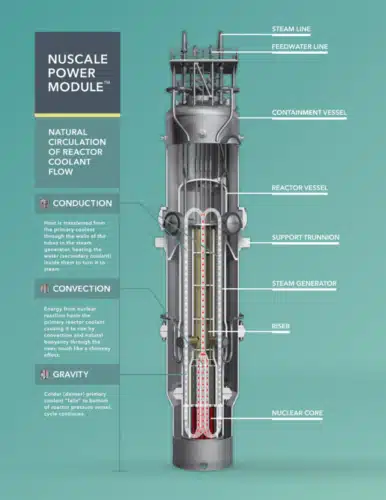The US has certified NuScale’s Small Nuclear Reactor (SMR) for use and it is the seventh nuclear reactor approved for use.

NuScale has been working on the first-of-its-kind nuclear reactor since 2016. The Nuclear Regulatory Commission(NRC) has given a green light, approving the same. The pint-sized reactor has numerous safety benefits over the large-sized reactors. This enables building them at a centralized facility before shipping them to the destination.
With drastic climate changes due to carbon emission from fossil fuels, nuclear is seen as an alternative, generating high electricity while reducing the carbon emission. Despite the advantages, the fear of nuclear and the effect of the accidents that happened earlier still remain a horror.
NuScale says that it is a small modular reactor (SMR) that is based on a “Multi-Application Small Light Water Reactor” developed at Oregon University. It has a compact uranium core along with helical coil steam generators. These are packed in the same steel reactor vessel. It generates power through the same mechanism as a classic reactor, however, each SMR only produces about 50 MWe (Megawatts electrical).
The compact SMR by NuScale can be produced at one point and moved to another, reducing all the costs involved in creating a reactor chamber at the final location of a power plant. It also includes various safety features that could avert the accidents from the past. In case of any emergency, the gravity will pull the control rods completely into the reactor, averting the accident. The design explains that the SMRs are completely submerged in the water, which acts as a heat sink. These heat sinks replace the water piping from the traditional reactor design.
The designs are expected to be published in the Federal Register as the certification is complete. This is the seventh reactor design approved in the US for use. A project is already planning on using NuScale’s technology, however, the “Carbon Free Power Project” at Idaho National Lab will not be able to begin the operations until 2030.







